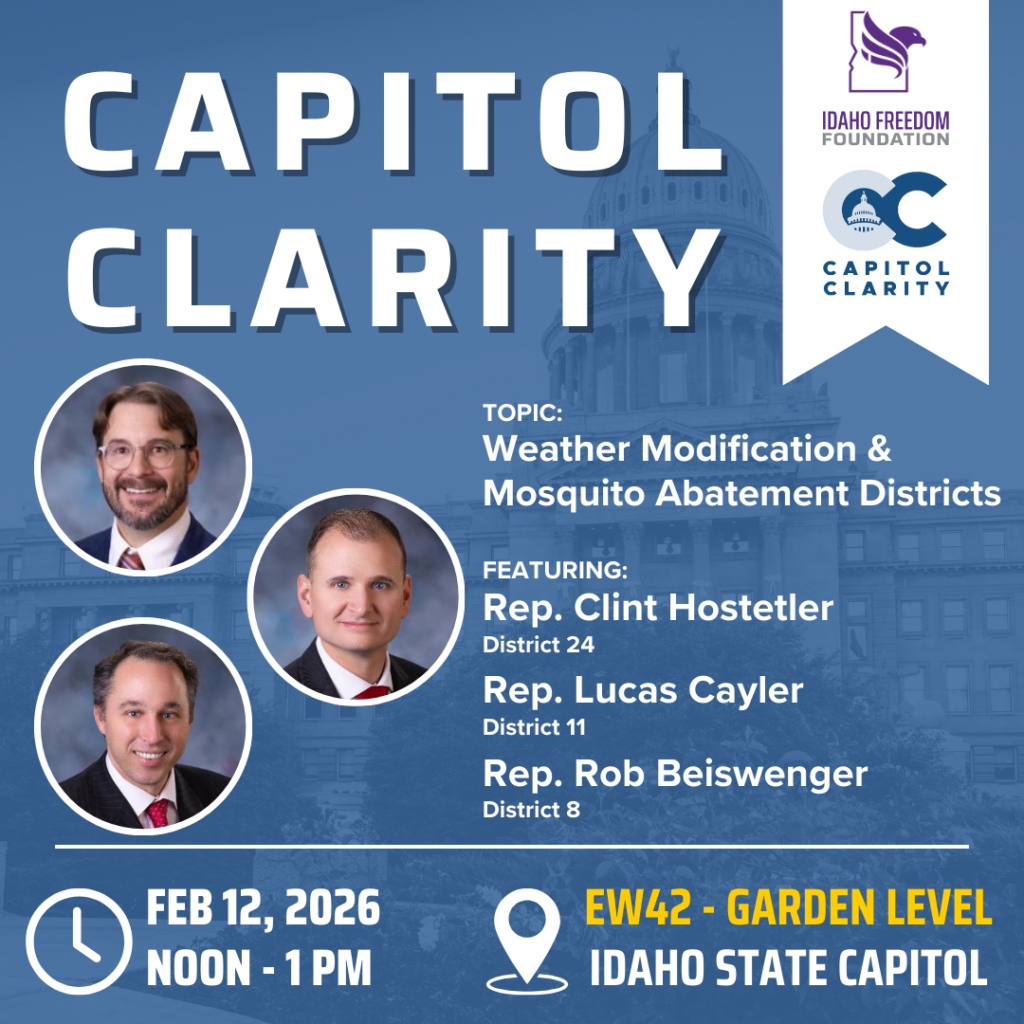
Ronald Reagan once quipped that a government agency “is the nearest thing to eternal life we’ll ever see on this earth.” So it’s hard to see a good reason to celebrate the state government’s lottery, which turns 30 this month; No doubt the state lottery will still exist 60 years henceforth, perhaps outlasting the readers and writer of this column. I’d rather ask Idahoans to use this occasion to scratch below the lottery’s surface to reveal a government program that liberals and conservatives should equally oppose.
Since its inception, the lottery has taken $3.7 billion out of Idaho’s economy. It has returned about $2.4 billion in prizes to players and commissions to retailers. For all those highly-promoted lottery ticket sales, only around 23 cents per dollar goes to Idaho’s schools and public buildings. That’s horrible math no matter who does the calculation, but it’s the kind of false benefit lottery officials have touted since the birth of the voter-approved program.
Worse, as a matter of public policy, the state lottery preys on individuals hoping to “strike it rich.” Government officials are fully aware that its residents would have been far better off putting their money into equities, real estate, or bitcoin. Gambling on Powerball and scratch tickets is the worst possible financial decision a person could make. Studies show significant numbers of people with limited disposable income believe the lottery is their path to prosperity, and as a result, spend a disproportionate share of their income on state-sanctioned gambling. The prosperity players seek will continue to elude them, and the state government helps make it so.
Even the Idaho Lottery acknowledges this, citing a nearly 20-year-old study that 17 percent of gamblers have an income of less than $20,000. Last year, Bankrate.com conducted a survey that found more than a quarter of Americans in the lowest income bracket play the lottery at least once a week, spending more than $400 annually on tickets.
Idaho’s government-run lottery encourages people to misspend money that could have been saved for emergencies or retirement, or used for food, rent, clothing, and education. Furthermore, in too many cases, the same families misspending money are those who either are dependent on government programs like food stamps and Medicaid, or will eventually become dependent, having failed to save for their future.
Governments exist to protect liberty, noted Leonard Read, celebrated founder of the Foundation for Economic Education. In 1964, he lamented the growing number of states adding “lottery” to the list of government services.
“Ideally, [government] is the agency which society uses to protect economic and other rights against fraud, violence, and the like in the interest of a common justice.” Read added, “When government itself becomes unjust, when it turns from protector to predator, or when it invites gambling as an economic means of financing its operations, it divests itself of respectability. When government does these things, it sanctifies and fosters injustice, predation, and economic nonsense!”
The Idaho Lottery can celebrate its existence, because that’s what government agencies do. But the rest of us should not, for we understand that for these last 30 years, the lottery has produced—with chilling precision—far more victims than victors.



